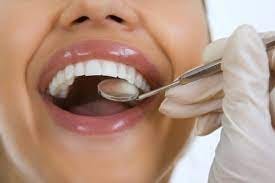Does Teeth Cleaning Help with Teeth Grinding?
Regular teeth cleaning helps prevent cavities, gum disease, and bad breath, ensuring optimal oral health and maintaining your pearly whites.
Does teeth cleaning help with teeth grinding? Teeth cleaning, while essential for maintaining overall oral health, doesn’t directly address teeth grinding (bruxism). However, regular cleanings can contribute to a healthier mouth and may play an indirect role in managing the effects of teeth grinding. In this article, we’ll explore how Teeth Cleaning relates to teeth grinding, what causes bruxism, and the best ways to prevent its damage to your teeth.
What Is Teeth Grinding and How Does It Affect Your Teeth?
Teeth grinding, or bruxism, is a common condition where a person clenches or grinds their teeth, often unconsciously, especially during sleep. This can lead to various dental problems if left untreated.
Damage to teeth: Constant grinding can wear down tooth enamel, leading to sensitivity, cracks, or even tooth fractures.
Jaw pain: Bruxism can cause discomfort or pain in the jaw, headaches, and muscle soreness.
Gum recession: Over time, teeth grinding can lead to gum recession, exposing the roots of teeth.
While teeth cleaning can’t stop the grinding itself, it helps maintain a healthy mouth by preventing other conditions that might worsen the damage caused by bruxism
.
How Teeth Cleaning Supports Overall Oral Health?
Although teeth cleaning doesn’t directly address bruxism, it plays a significant role in maintaining oral health, which can help reduce the long-term effects of teeth grinding.
Plaque and tartar removal: Regular teeth cleanings remove plaque and tartar that contribute to cavities, gum disease, and overall oral health issues.
Gum disease prevention: Cleaning helps prevent gum disease, which can exacerbate the impact of bruxism on your gums and teeth.
Overall health check: Dentists can identify early signs of bruxism during routine cleanings, such as tooth wear or jaw misalignment, and recommend further treatment.
By ensuring your mouth is free from plaque and gum disease, cleanings support a stronger foundation for your teeth, even if you grind them.
Can Teeth Cleaning Help Prevent Damage from Teeth Grinding?
While teeth cleanings don't directly prevent teeth grinding, they can help mitigate some of the damage caused by the condition. Regular cleanings can identify and treat issues early before they become major problems.
Tooth sensitivity: If grinding has worn down tooth enamel, cleaning can help detect early signs of enamel erosion, allowing your dentist to recommend protective measures.
Cracked teeth: Regular cleanings give your dentist the opportunity to identify small cracks or chips that may have resulted from grinding, preventing further damage.
Gum health: Healthy gums are better able to withstand the pressure of teeth grinding, and cleanings help maintain gum health.
Although teeth cleaning won't stop you from grinding your teeth, it can minimize the effects by keeping your teeth and gums in the best possible condition.
Other Treatments for Teeth Grinding:
To effectively manage teeth grinding, more targeted treatments are necessary in addition to regular Teeth Cleaning Treatment. Here are some options your dentist might recommend.
Nightguards: A custom-made nightguard can help protect your teeth from the damage caused by grinding while you sleep.
Stress management: Stress is a common cause of bruxism, so practicing relaxation techniques, such as meditation, yoga, or therapy, can reduce the frequency and intensity of grinding.
Dental restoration: If grinding has caused significant tooth damage, dental restoration options like crowns or fillings can help restore the function and appearance of your teeth.
Combining teeth cleaning with these treatments can provide comprehensive care for individuals who grind their teeth.
When to See a Dentist for Teeth Grinding?
If you suspect that you are grinding your teeth, it’s important to see a dentist for a thorough evaluation. The earlier you address bruxism, the easier it will be to manage and prevent damage.
Frequent headaches or jaw pain: If you're experiencing regular headaches or pain in your jaw muscles, it could be a sign of teeth grinding.
Tooth wear or cracks: If your dentist notices unusual wear patterns on your teeth during cleaning, this may indicate bruxism.
Increased sensitivity: If your teeth have become more sensitive, it could be due to enamel erosion caused by grinding.
Your dentist can help diagnose bruxism and suggest appropriate treatment options, such as a mouthguard or stress-relief techniques.
Conclusion:
In conclusion, teeth cleaning helps with teeth grinding indirectly by ensuring that your oral health is in top condition and minimizing the effects of grinding. While it doesn’t prevent bruxism, regular cleanings can prevent additional oral health issues like plaque buildup, gum disease, and tooth sensitivity that can worsen the effects of grinding.
Preventive care: Cleanings help remove plaque and tartar and can catch early signs of damage caused by grinding.
Protective treatments: Work with your dentist to find additional treatments, such as mouthguards, to protect your teeth from the harmful effects of bruxism.
Early intervention: Regular cleanings help detect early signs of bruxism, allowing for timely intervention and care.
By combining routine teeth cleanings with appropriate treatments, you can better manage teeth grinding and maintain long-term oral health.


